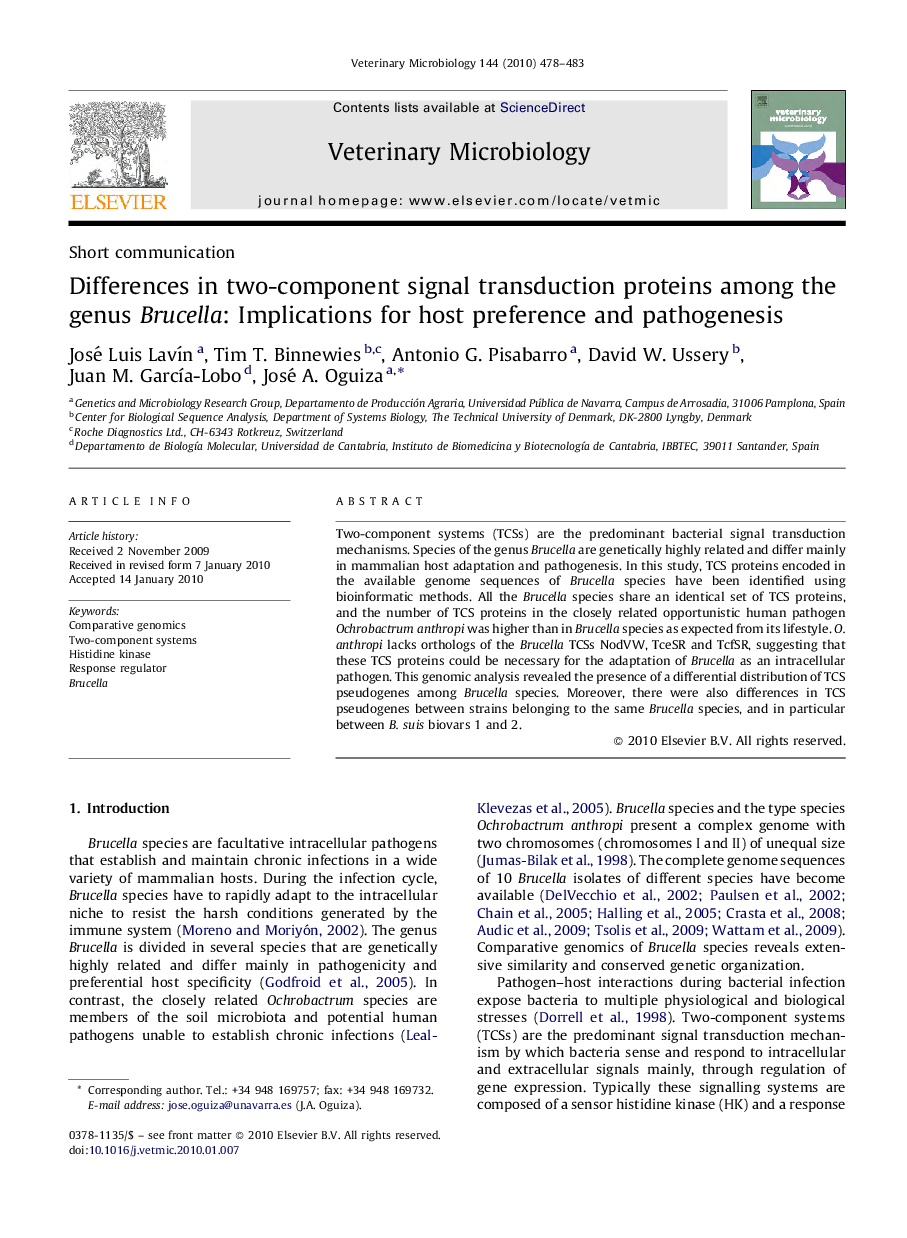| Article ID | Journal | Published Year | Pages | File Type |
|---|---|---|---|---|
| 2468045 | Veterinary Microbiology | 2010 | 6 Pages |
Two-component systems (TCSs) are the predominant bacterial signal transduction mechanisms. Species of the genus Brucella are genetically highly related and differ mainly in mammalian host adaptation and pathogenesis. In this study, TCS proteins encoded in the available genome sequences of Brucella species have been identified using bioinformatic methods. All the Brucella species share an identical set of TCS proteins, and the number of TCS proteins in the closely related opportunistic human pathogen Ochrobactrum anthropi was higher than in Brucella species as expected from its lifestyle. O. anthropi lacks orthologs of the Brucella TCSs NodVW, TceSR and TcfSR, suggesting that these TCS proteins could be necessary for the adaptation of Brucella as an intracellular pathogen. This genomic analysis revealed the presence of a differential distribution of TCS pseudogenes among Brucella species. Moreover, there were also differences in TCS pseudogenes between strains belonging to the same Brucella species, and in particular between B. suis biovars 1 and 2.
